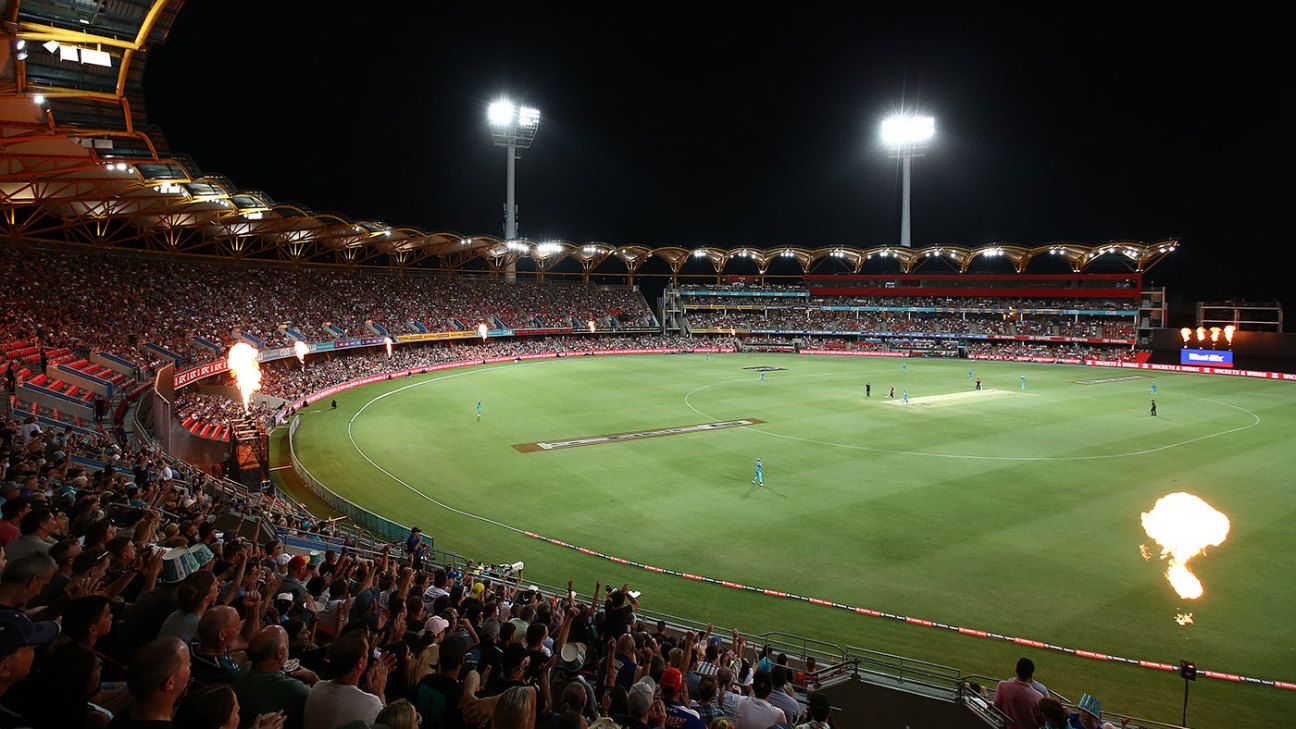
The tenth edition of the Big Bash League may be played in 10-game blocks in individual centres in a concession to the constraints of Covid-19, and may venture as far afield as Launceston and the Northern Territory as the tournament turns its expansive venues footprint into a series of contingencies to get its gargantuan 61-game schedule completed.
Anthony Everard, Cricket Australia's executive in charge of fan engagement and one of the BBL's principal architects from its very first edition in 2011, said that while there had been no conception of a global pandemic in planning to take the BBL to as many venues as possible over its first decade, a choice of as many as 15 venues in which to play out the tournament meant that probable obstacles to playing in Victoria, in particular, need not be catastrophic.
"It wasn't that long ago that we basically had the six Test-playing venues around the country available, and it's been one of the great legacies of the BBL in opening up not just different parts of Australia but creating a footprint of venues around the country from Launceston to the Gold Coast, to Geelong, to Gippsland and everywhere in between," he said. "That gives us a heap of options we might not have otherwise had.
ALSO READ: BBL finale set to be given clear air for broadcasters by shifting New Zealand series
"I'm not sure we had a global pandemic in mind when we made those decisions, but it certainly is going to be very helpful when it comes to needing to move the BBL festival from market to market, particularly when you factor in that you've got international cricket being played in parallel also. That's something we're spending an enormous amount of time trying to come up with a schedule that leverages that."
One concept on the drawing board is for a travelling circus style in which all clubs, players and broadcasters would stop over in a venue for around two weeks, play over 10 days at one or two grounds and then jet off to the next available hub.
"We want to try and retain as many of the successful ingredients of the BBL as possible, which is that appointment viewing night after night, school holidays, but equally we need to be responsive to our environment," Everard said. "I don't reckon there's a sports league in the country that would criss-cross state borders as rapidly as the BBL over summer, a different game in a different city every night, and that's just not going to be realistic this year.
"We've been watching, listening and learning from how the other sports have gone about it. There is another model on the table whereby we look at adopting a travelling roadshow of BBL festivals that come to your town, 10 nights only, 160 of the best T20 players from around Australia and the world, and then the show leaves town, moving on to the next market. So we're going to be very reliant on the support of state governments to the extent we can move the BBL around the country. We're just going to have to be really adaptable as things unfold."
Everard's role also takes in the staging of international cricket around the country, with this season seeing a distinct move away from a central CA events team travelling to each venue, with far more reliance placed upon the staff of each state association to put on events at and around the scheduled fixtures.
"Off the field it certainly builds resilience and it has galvanised Australian cricket in a way I haven't seen in my time," Everard said. "On the field, if I bring it back to the BBL, there's a lot of commentary and speculation around who will and won't play in the BBL, but one of the best features of the BBL is the surprise and delight element, you never quote know who is going to step up.
"Whether that be Jofra Archer a few years ago at the Hurricanes, or in more recent times Josh Phillipe and Riley Meredith are in the Australian squad now off the back of their BBL performances. I'm really excited about who is going to seize the opportunity to have their breakout year in the BBL."















 Phone: (800) 737. 6040
Phone: (800) 737. 6040 Fax: (800) 825 5558
Fax: (800) 825 5558 Website:
Website:  Email:
Email: 






